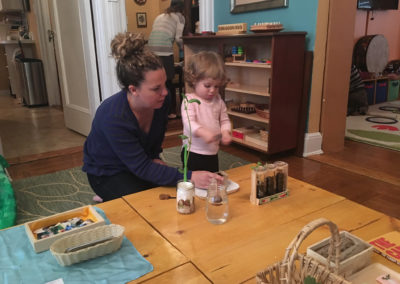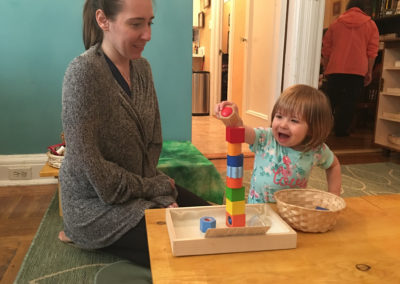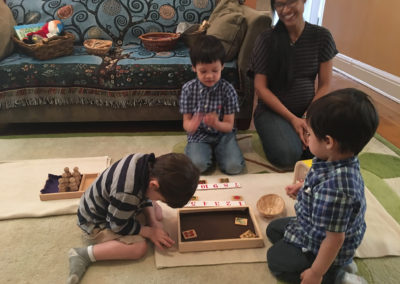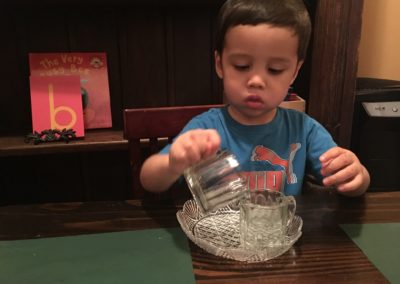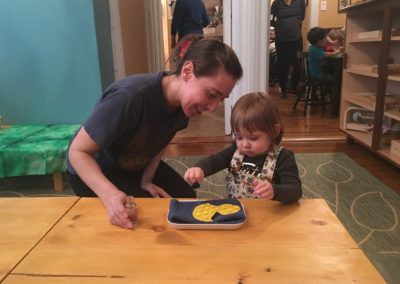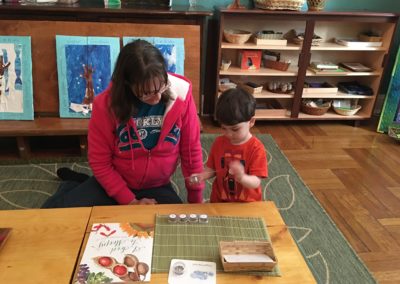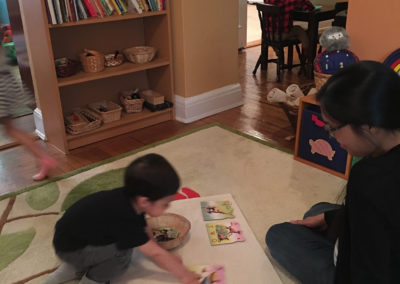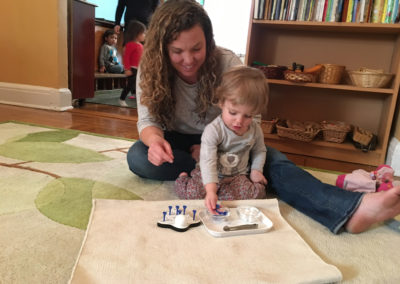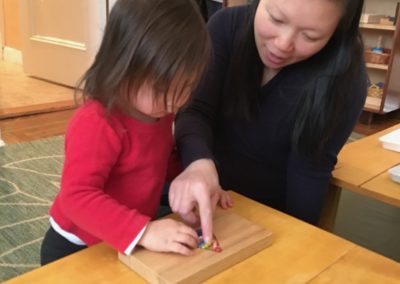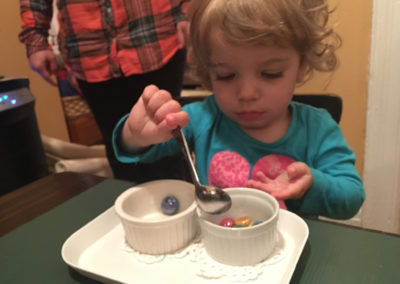Montessori Foundations
The Studio Garden is a member of Montessori Educational Programs International.
The American Montessori Society describes the following bullet points as core Montessori principles to be incorporated in a Montessori classroom. After the bolded text is a description of how The Studio Garden embraces and fulfills that Montessori ideal.
- Each child is valued as a unique individual. We believe that each child brings unique set of strengths and talents in to the classroom. We seek to accommodate multiple learning styles and help children to learn at their own pace. The teacher guides the student through the curriculum in an individualized way – engaging the child through their interests while encouraging them to explore new areas and challenge themselves. We also recognize that the child has unique things to offer the class, and we invite children to share their work and learning with the group in age appropriate ways. This helps to build their confidence and feel more comfortable expressing their individual voice.
- Beginning at an early age, Montessori students develop order, coordination, concentration, and independence. Our classrooms are designed to provide an intimate, comfortable, orderly and creative work place for our students. There is interactive art by professional artists featured in the classroom as well as a special place designated for work created by the students. The curriculum materials are of the highest quality created by artisans from around the world. There is a natural flow, order and beauty to the classrooms that are inviting and facilitate the children’s independent exploration. Our class routines and work cycle help the children to focus, self-regulate, and become capable of leading their own learning experience. The teacher supports and guides the learning, while empowering the child through a prepared and structured environment to freely explore.
- Students are part of a close, caring community. Our class sizes are small to allow for the maximum benefit of one-on-one attention as well as meaningful relationships among the children. Children range in age about 1.5 years. The toddlers class range from 20 months – 3 years and 6 months, and the preschoolers class from 3 – 4 years and 8 months old. The younger children feel supported and the older children become role models and mentors. We also have a unique aspect to our classroom in that each child is accompanied by a loving adult, so the children not only experience a group of their peers but also a group of caring and committed adults. There are multiple layers of relationships being nurtured at the same time – parent-child, student-teacher, child-child and parent-parent and parent-teacher. This inclusive model helps bridge the gap between school and home, so the child experiences a seamless continuum of learning. The context of their home and family support them in school and the learning from school is easily extended in the home. The community around the child’s learning is close and connected and fully supporting the child’s individual journey.
- Montessori students enjoy freedom within limits. The order of the classroom and the parameters provided by the teacher give the support and structure to promote maximum creative exploration. Children actively engage in a process of choosing their work and pursuing their curiosity. The children experience the internal satisfaction of discovery, persistence, and reaching a goal. they also experience the joy of learning collaboratively while negotiating sharing time, attention, and materials. We also help children understand the purpose of the limitations they experience in the classroom, and therefore internalize those principles themselves.
- Students are supported in becoming active seekers of knowledge. We present all of the curriculum materials in such a way as to promote maximum curiosity and visual interest. We also organize the material to be process driven so that the child is encouraged to follow through a series of steps in order to reach the stage of completion and celebration of their work. We also layer the work so that the child can go deeper with the same type of activity but at a higher level of complexity or with an increased number of steps. So that the child is being challenged to stretch their focus and attention in their learning experiences. Students are encouraged to ask their own questions and help drive the learning by those unique questions. The teacher then has the opportunity to extend that knowledge to the class by inviting other to join the inquiry or to pair students with similar questions. The teacher is a facilitator of wonder in the class room through both inquiry and creativity.
- Self-correction and self-assessment are an integral part of the Montessori classroom approach. Much of the curriculum is designed with a control of error – meaning the teacher structures the activity so that the child is directed on a clear path of action. Other activities have a self-evaluation in which the student checks their work against a control card. When working with a teacher or with a small group, the teacher encourages the child to test their answers – particularly if the child makes a mistake so that they can correct it themselves. If the child is having trouble, we encourage the student to ask a friend. This helps the child feel comfortable in asking others for help and gives the friend who is asked the opportunity to support his classmate’s learning. This is an important process in helping to build a trusting and collaborative learning community and encourage the students to take risks and support one another.
Arts Integrated Curriculum | Montessori Foundations | Music Together | Nature Exploration | Adult Supported Learning

